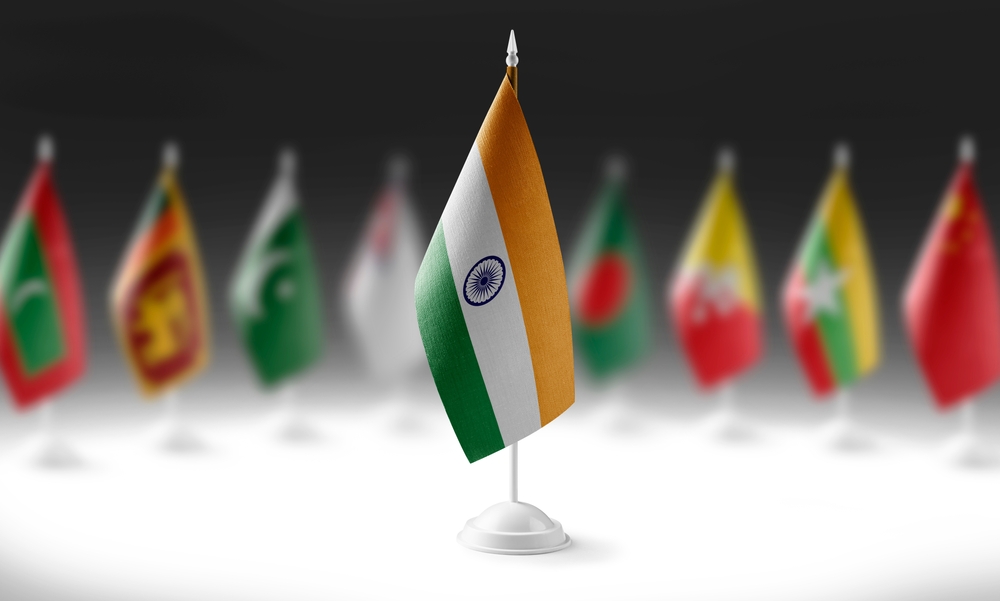Introduction
The Indo-Pacific region, encompassing the vast expanse from the eastern coast of Africa to the western shores of the Americas, stands as a crucible of geopolitical and economic dynamism. Its strategic importance has surged in recent years due to its pivotal trade routes, rich natural resources, and escalating geopolitical rivalries. India, with its growing economic clout and strategic ambitions, has increasingly turned its gaze towards this crucial region, recognizing both its opportunities and challenges. This blog explores India’s evolving role in the Indo-Pacific, examining its strategic partnerships and the hurdles it faces in navigating this complex landscape.
Historical Context
India’s engagement with the Indo-Pacific is rooted in its historical maritime connections and trade practices. Historically, India has been an integral player in the region, with its ancient trade routes connecting it to Southeast Asia and beyond. The evolution of India’s foreign policy towards the Indo-Pacific has been shaped by a blend of historical legacies and contemporary geopolitical shifts. The end of the Cold War marked a significant turning point, leading India to reorient its foreign policy towards a more active engagement in the Indo-Pacific.
Key historical events such as the Bandung Conference in 1955, which promoted solidarity among Asian and African nations, and India’s Look East Policy initiated in the early 1990s, laid the groundwork for its current strategy. The Look East Policy, evolving into the Act East Policy, highlighted India’s intent to deepen economic and strategic ties with Southeast Asia and the broader Indo-Pacific region.
Strategic Importance of the Indo-Pacific
The Indo-Pacific’s economic significance is underscored by its status as a major trade corridor. It is home to critical maritime routes that facilitate global trade, including the Malacca Strait and the South China Sea. The region’s natural resources, particularly energy resources and fisheries, further enhance its economic value. For India, ensuring the security and stability of these trade routes is crucial for its economic growth and energy security.
Geopolitically, the Indo-Pacific is a theater of power projection where major global players such as the United States, China, and regional powers like Japan and Australia assert their influence. The strategic competition in this region has intensified, with countries vying for influence over regional security arrangements and economic partnerships.
Security concerns are equally significant, with territorial disputes in the South China Sea and maritime security challenges posing risks to regional stability. India’s strategic interests in maintaining a free and open Indo-Pacific align with its broader security goals.
India’s Strategic Partnerships
United States:
The India-U.S. strategic partnership has seen remarkable growth, especially in defense, trade, and regional security. Recent agreements, such as the Logistics Exchange Memorandum of Agreement (LEMOA) and the Communications Compatibility and Security Agreement (COMCASA), have bolstered military cooperation. Joint military exercises and defense collaborations enhance operational synergy and address shared security concerns. The U.S. support for India’s role in the Indo-Pacific reflects a strategic alignment aimed at countering regional threats and promoting stability.
Japan:
The India-Japan relationship has evolved from historical ties to a robust strategic partnership. Recent advancements include cooperation in infrastructure development, technology, and maritime security. Japan’s investment in Indian infrastructure projects, such as the Mumbai-Ahmedabad high-speed rail project, exemplifies this collaboration. Japan supports India’s strategic interests through regional dialogues and cooperative frameworks, enhancing India’s influence in the Indo-Pacific.
Australia:
The India-Australia partnership has strengthened in recent years, focusing on defense cooperation, trade, and regional security. Both countries have collaborated on joint military exercises and strategic dialogues, addressing common concerns over regional stability. Australia’s support for India’s inclusion in regional forums and its role in balancing China’s influence underscores the deepening strategic ties.
ASEAN Countries:
India’s engagement with ASEAN nations is vital for its Indo-Pacific strategy. Participation in regional forums like the East Asia Summit and ASEAN Regional Forum demonstrates India’s commitment to multilateral diplomacy. Economic and strategic cooperation with key ASEAN member states, such as Vietnam and Indonesia, highlights India’s role in regional stability and economic integration.
India’s Strategic Challenges
China’s Influence:
China’s growing influence in the Indo-Pacific presents a significant challenge for India. The Belt and Road Initiative (BRI), which extends China’s economic and strategic footprint, impacts regional dynamics. India’s response includes strengthening partnerships with like-minded countries and countering China’s military expansion. The ongoing India-China border disputes further complicate regional stability and affect India’s strategic posture.
Regional Security Concerns:
Maritime security challenges, particularly in the South China Sea, and regional instability due to terrorism are pressing concerns. India’s role in addressing these issues involves participating in security dialogues, enhancing maritime capabilities, and contributing to regional counter-terrorism efforts. Ensuring regional stability is crucial for India’s economic interests and strategic goals.
Economic Competition:
The competition for influence and economic partnerships in the Indo-Pacific presents both opportunities and challenges. Balancing economic growth with strategic interests requires navigating complex geopolitical dynamics. India’s efforts to foster regional trade and investment must contend with geopolitical tensions and competition from other major players.
India’s Regional Engagement Strategies
Diplomatic Initiatives:
India’s diplomatic efforts in the Indo-Pacific focus on strengthening ties with key nations and participating in regional dialogues. Initiatives such as the India-ASEAN strategic partnership and the Quad grouping highlight India’s commitment to multilateral diplomacy and regional stability.
Defense and Security Cooperation:
India’s defense and security cooperation involves joint military exercises, defense agreements, and strategic partnerships. Efforts to enhance maritime security and counter-terrorism initiatives underscore India’s role in maintaining regional stability and addressing security challenges.
Economic Diplomacy:
Trade agreements, investment initiatives, and economic partnerships are central to India’s regional engagement. India’s participation in regional economic forums and trade organizations demonstrates its commitment to fostering economic growth and integration in the Indo-Pacific.
Future Prospects
Enhanced Cooperation:
Opportunities for deepening strategic partnerships with key Indo-Pacific nations include collaborative projects, joint initiatives, and new alliances. Strengthening relationships with countries such as South Korea and Indonesia could further enhance India’s influence and strategic position.
Strategic Balance:
India’s role in shaping the strategic balance in the Indo-Pacific involves influencing regional policies and maintaining stability. By leveraging its partnerships and strategic initiatives, India can contribute to a balanced and stable regional order.
Long-term Challenges:
Addressing emerging challenges and adapting to shifting geopolitical dynamics is crucial for India’s long-term success. Ensuring sustainable economic and strategic growth requires a proactive approach to diplomacy, security, and economic development.
Conclusion
India’s role in the Indo-Pacific is marked by its strategic partnerships, evolving engagement strategies, and the challenges it faces. By strengthening its alliances, addressing security concerns, and fostering economic growth, India can enhance its influence in the region. Continued engagement and collaboration are essential for navigating the complex dynamics of the Indo-Pacific and achieving a stable and prosperous regional order. As India continues to play a pivotal role in shaping the future of the Indo-Pacific, its strategic partnerships and proactive engagement will be key to its success




